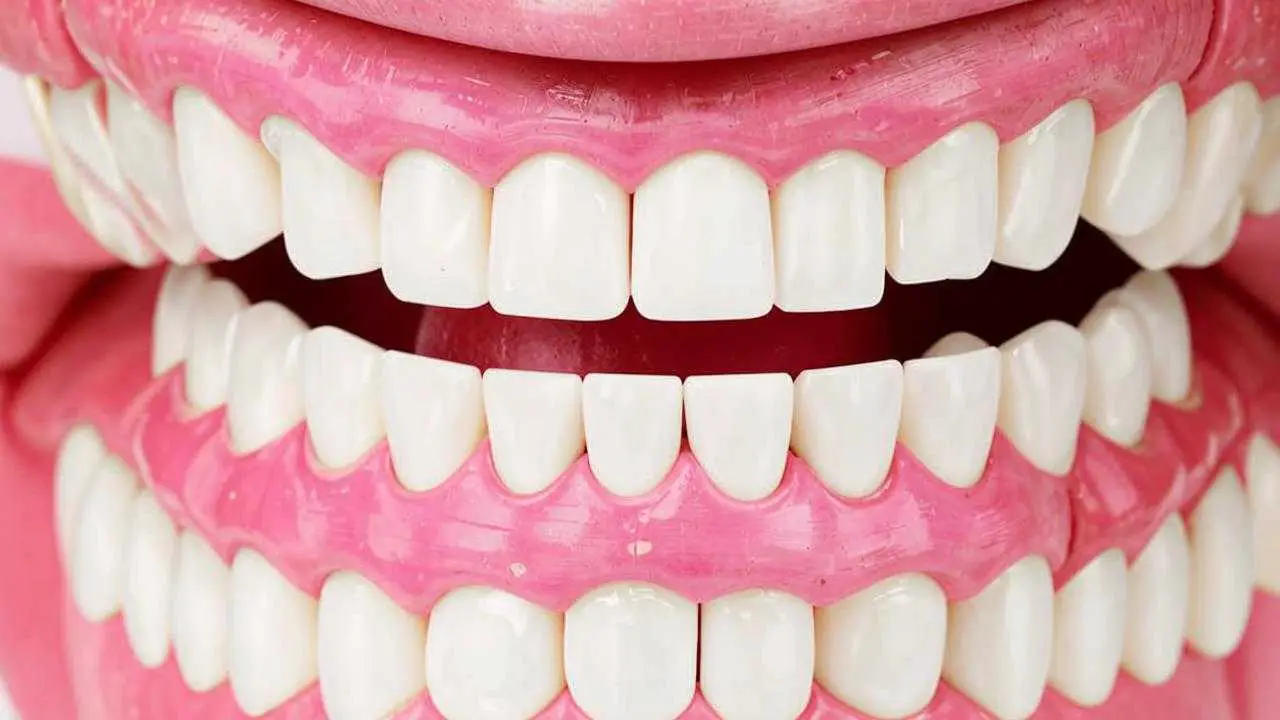Reading time ~ 3 min Number of readings: 77101
The natural color is milky white, a little translucent. If the teeth are white – the dentist intervened, such tones do not exist from birth.
The shade depends on the dentin and enamel. In young years in a person’s enamel layer is stronger. The tooth row looks whiter if the enamel layer is dense and does not allow light to pass through. This is achieved by removing irregularities.
As the teeth age, the surface becomes flatter, light passes through more easily, making the image duller. Enamel becomes brown, yellow, black or gray. Different parts of the structure are differently colored. From above, a light shade prevails, from below – a dark shade. But each person has a different natural tone – a normal phenomenon.
What do natural teeth look like?
The innate color depends on:
- genetic factor;
- a person’s environment;
- skin color, race.
There is a well-established opinion that black people have snow-white smiles. This is a misconception, an optical illusion. Their smiles appear brighter against a darker skin background.
If you compare the jaws of an African-American and a Slav – the result is the same. This phenomenon is found in sunburned people. If a person lies in the sun for at least an hour – this is enough to transform the smile.
How do they determine the color of teeth?
Dentists determine it according to one principle. There is the Vita scale, which divides the varieties according to the shade range:
- brown;
- gray;
- yellow;
- red.
There is no white: it is an unnatural phenomenon created by technology.
The degrees of hue are divided into 4 ordinal levels. There is no “0” marking on the table.
Latin letter “A” – red-brown gamut. The higher the number in the index, the darker the enamel:
- light-colored teeth – “A1”;
- darker teeth, A2;
- darker still, A3;
- darker still, “A4.”
Yellow is the Latin “B.” There is a gradation from 1 to 4. Gray shade is characterized by the indices “C1”, “C2” and further down the list. Red-gray surface on the Vita scale is designated by the Latin letter “D”.
How to choose the color?
If the patient is going to choose a tone on his own, take into account the conditions that affect the visual component:
- Skin tones. The darker the skin, the whiter the tooth bones look.
- Hair. Same with skin. Brunettes appear to have a lighter smile than blondes.
- The whites of the eyes. If they are dimmer than the smile area, it looks unnatural and overly prominent when opening the mouth.
- The material from which the dental structure is made. Plastic materials have a difference from metal-ceramic, even though they have the same index on the Vita scale.
Changes in lighting, tarnish distorts the perception of colors. The walls in the clinic and the clothes of the dentist, patient should be a neutral shade. Women are advised to wash off lipstick. Sometimes the rest of the cosmetics are removed.
Where to make prosthetics?
Many clinics provide services for partial or full dentures. Find doctors based on reviews. Apply to a clinic that has proven professionalism with experience and work.
A doctor who knows his business will not rest until he has perfected your smile. The equipment of the clinic is important. Equipment in the hands of an experienced doctor works wonders. You will get what you expect.
As for the price – it depends on the case. Prices range from 1700 rubles for simple crowns to 30000 for lumineers or veneers. The procedure will cost 21000 per piece.

